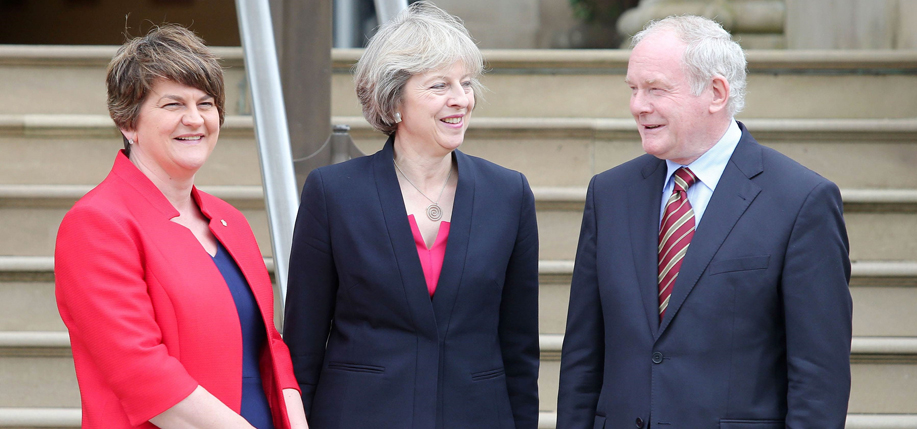In June, the United Kingdom officially passed the referendum to end its membership with the European Union. A slim 51.9 percent majority voted in accordance with the “Leave” campaign, while 49.1 percent voted to remain. Statistics have shown that the majority of the Leave votes came from polling stations in Wales and rural England, whereas London, Scotland, and the majority of Northern Ireland voted to remain.
Though Northern Ireland accounts for only 1.5 percent of U.K. citizens, the move may have dramatic consequences for the country, which is the only U.K. region to share a land border with another E.U. member state, the Republic of Ireland. Fifty-six percent of Northern Irish voters chose to remain in the E.U. Also backing the “Remain” vote was James Brokenshire, who has since been appointed the new secretary of Northern Ireland.
Remain campaigners in Northern Ireland warned that the success of the Leave vote would result in intensified border security measures between Northern Ireland and the Republic, which could threaten Peace Process that continues to develop since the socio-political conflict of the Troubles in the 1970s.
“The Good Friday Agreement allowed both sides to be who they wanted to be,” said Derry researcher and historian Neil Duffy in an interview with the Los Angeles Times. “It made the border irrelevant. But now it’s become relevant again.”
Britain’s departure from the E.U. prompted Northern Ireland’s deputy first minister Martin McGuinness to call for a border poll on the reunification of the Irish state. The Sinn Féin leader told the Guardian that there was a “democratic imperative” to allow the people of Ireland the option to re-establish Northern Ireland and the Republic as one nation.
Similarly, his fellow Sinn Féin party member Gerry Adams told the Independent that the E.U. should honor Northern Ireland’s majority “Remain” vote. “People voted to remain in the E.U.,” he said. “That should be upheld.”
However, newly-elected U.K. prime minister Theresa May (David Cameron voluntarily resigned in July following the vote) and Northern Ireland’s first minister Arlene Foster have both said that there is no united Ireland in the foreseeable future. “We don’t have to do things the way we did in the past and that’s what the Brexit vote is about,” Foster told the Telegraph U.K. “Something new, something different, let’s think about all of that.”
In the Republic, Fianna Fáil party leader Micheál Martin has emphasized the importance of solidarity with Scotland after Scotland’s first minister Nicola Sturgeon claimed it would be democratically unacceptable for her country (which voted 62 to 38 percent for Remain) to be forced out of the E.U.
Sturgeon is currently advocating for a repeat of Scotland’s 2014 referendum for independence. If the referendum is held and passed, it is uncertain how Northern Irish officials will proceed.
In terms of the potential economic ramifications in the north, the business community has entered into a new era of uncertainty, according to Ulster Bank chief economist Richard Ramsey. He told the Irish Times that an increasing number of economists predict the U.K.’s fall into recession in the next year, and that Northern Ireland’s reliance on Great Britain will cause it to follow suit.
Dr. Lee McGowan, senior lecturer of European studies at Queen’s University Belfast, has expressed concerns for the future of university research and student mobility. He notes, “It is not generally known how much the E.U. boosts U.K. science and innovation in terms of the freedom of movement for talent and gifted European scientists, let alone access to considerable financial support.”
The potential implementation of passport control along the 310-mile inter-Irish border is also concern for many Irish and Northern Irish people. Taoiseach Enda Kenny has expressed that it would hinder the Republic’s ability to negotiate its relationship with the U.K. without the involvement of its European partners. On a smaller scale, it would greatly complicate the daily travels of commuters who live on one side of the inter-Irish border and work on the other. Kenny told the Independent that the administrations of Dublin, Belfast, and London “share the common objective of wanting to preserve the Common Travel Area and an open border on the island of Ireland.” ♦
Brexit Creates Worry for Northern Ireland


Leave a Reply